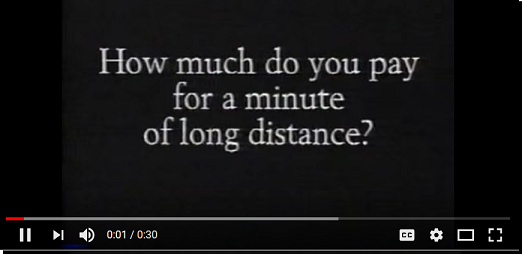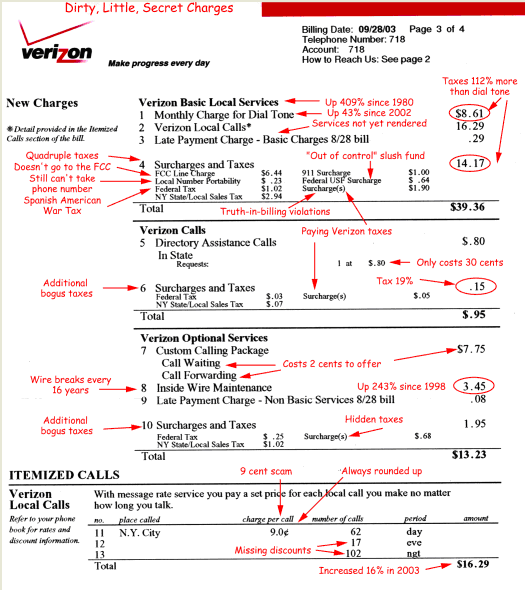In 1992, I went to visit my Aunt Ethel. At the time she was 87 years old, legally blind and had to use a ‘walker’, but still was still as sharp and funny as ever. Her caretaker gave me a shoe-box of phone bills as she couldn’t figure out the charges. I had been a telecom analyst for over a decade by then and the phone companies were my clients, but I never, ever examined the actual charges for phone service. I went home, put the charges into a spread-sheet and was shocked. She had paid over $1000.00 for the rotary phone rental and over $360.00 for the ‘inside wiring’, which she did not order– and she had 2 lines.
You can imagine my surprise; as a senior telecom analyst I needed to know more and created New Networks Institute. We created a joint venture with Probe Research and others market research firms to understand just what had happened and started by doing one of the largest research projects to date to examine how the break up of the original Ma Bell in 1984 impacted customers and the telecommunications landscape for the first decade.
Today, New Networks is the Managing Director and Founding Member of the IRREGULATORS.
In 1993 and 1994, New Networks Institute, with Probe and Fairfield Research conducted extensive phone-based surveys, as well as collected bills nationwide to examine what customers knew about the charges on their phone bills. Our surveys found that literally 0% (3 out of 1000) consumers could answer basic questions about the charges on their bills. (And ironically, this research ended up being featured on the first, flat-rate long distance plan; Sprint’s $.10 a minute service featuring Candice Bergen.)
In 1998, NNI filed in the first FCC Truth-in-Billing proceeding, and in 1999 we released a report called “The Real Truth in Billing”. In fact, our marked-up Verizon phone bill is one of the most famous bills in history (Click to enlarge) having been in the top searches since 2003.
We also started the call for the removal of the Spanish American War Tax, a federal tax placed on bills in 1898 to fund the war, which was removed, finally in 2006.
And in 2003 we were on the FCC’s Consumer Advisory Committee where we were blocked from presenting a report on Truth-in Billing, which was based on using Verizon bills we had collected in our ‘Send Us Your Phone Bill’ campaigns. Ironically, the meeting was on Truth-in-Billing and the meeting was our idea. (Wouldn’t you know it; Verizon was on the Committee.)

